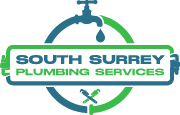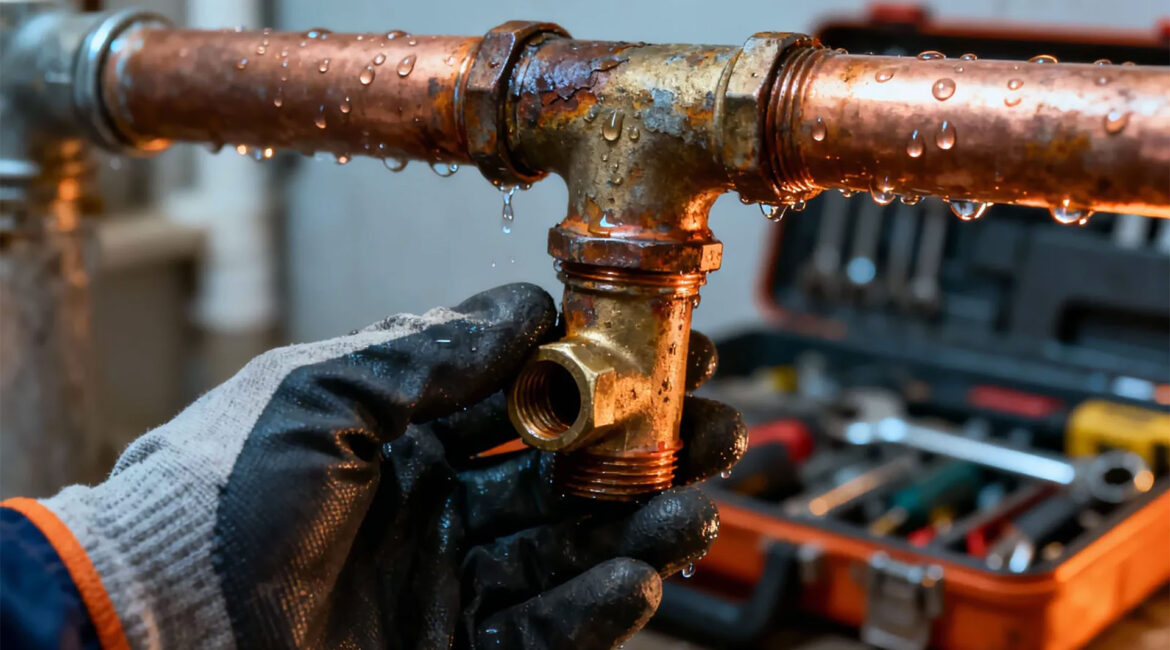That moment when you hear something odd coming from your pipes and wonder: Is this normal? Is something broken? Do I need to call a plumber right now?
We get it. It’s one of the most common questions we hear, and honestly, your plumbing’s trying to tell you something. The good news? Most sounds follow predictable patterns. Once you understand what’s happening behind the scenes, you can often figure out whether it’s a simple fix, something you can adjust yourself, or when you genuinely need professional help.
We’ve worked through countless similar situations. Let’s walk through the three most common plumbing noises we hear, what they typically mean, and the practical steps you can take before calling a professional.
What You’ll Discover
- Gurgling sounds: what they reveal about clogs and venting issues (and which ones are DIY-fixable)
- Hissing from your taps: why high water pressure causes this and how to check yours
- Water hammer: that banging sound when you turn off the tap (and when it becomes serious)
- Which noises are just annoying versus which ones need immediate attention
- Simple checks you can do today before deciding whether to call a professional
1. Gurgling: The Most Common Culprit
That gurgling sound you hear from your toilet, sink, or shower drain usually means one of two things: either you’ve got a partial clog blocking water flow, or your drain venting system isn’t working properly.
Here’s what’s happening: Water should drain smoothly down your pipes. When it can’t because something’s partially blocking it, air gets trapped and bubbles back up. That’s the gurgling you hear. With our hard water, sediment buildup in drains is pretty common, so partial clogs happen more often than you’d think.
What You Can Check Yourself
Start with these simple steps before calling a professional:
- Pour boiling water down the affected drain. Use enough to flush through (not a full kettle), wait a few minutes, then test the drain again. If the gurgling stops, sediment was the culprit, and you’ve solved it.
- Remove and clean the drain stopper. Most stoppers twist or pull out easily. Hair and soap often accumulate right at the drain opening. Thirty seconds of cleaning can eliminate the problem.
- Check for visible debris in the drain. Look down the opening and pull out anything you can reach safely.
Still gurgling? It might be your vent system. Your plumbing has small vent pipes (usually on your roof) that let air into the drainage system. Without them, water drains poorly and makes that gurgling sound. This is where it gets trickier because you don’t want to be climbing on roofs or opening walls to check vents. That’s a signal to call a professional.
2. Hissing: High Water Pressure at Work
That hissing sound from your taps when you turn them on, or sometimes even when they’re off, usually points to one thing: water pressure that’s too high.
Normal household water pressure sits around 50-60 psi (pounds per square inch). Most people don’t think about their pressure until it’s too high. And here’s the thing: higher pressure saves water, which sounds good until it starts stressing your pipes.
How to Check Your Pressure Yourself
Nearly all hardware stores carry water pressure gauges at affordable prices. Here’s what to do:
- Connect the gauge to an outside tap and turn it on fully.
- Read the psi measurement. If it reads over 80 psi, your pressure is running high.
- Note the reading. You’ll want this number if you talk to a professional about adjustment.
Most homes have a pressure regulator, a small valve where your main water line enters the house. It’s usually located near where the water meter or shut-off valve is. If yours is set too high, adjustment or replacement might be needed. Pressure regulators typically last about 10-15 years.
If you’re comfortable with basic adjustments, you might find an adjustment screw on the regulator itself. A quarter-turn counterclockwise can lower pressure. But here’s the honest part: if you’re not confident about which valve does what, this is genuinely easier and safer to have a professional handle. Messing with the wrong valve or over-adjusting creates other problems.
3. Water Hammer: That Banging Sound When You Stop the Flow
Water hammer is exactly what it sounds like: a banging or knocking sound that happens when you turn off a tap suddenly. The water rushing through your pipes suddenly stops, and the pressure surge creates that shock wave bang.
Once in a while? Totally normal. Constant banging? That’s worth investigating.
Quick Check: Is It Everywhere or Just One Location?
Start by identifying the scope of the problem:
- Listen from multiple taps throughout your home. Does the banging happen at all of them or just one?
- Note the timing. Does it happen every time you turn off a tap or only occasionally?
- Check the location. If it’s only one tap, the shut-off valve at that location might be damaged or stuck.
If you hear it from one specific tap, that tap’s shut-off valve might be damaged or sticking. The valve might be jamming shut and causing the pressure surge.
If it’s happening throughout the house whenever anyone turns off a tap, your main shut-off valve might be the issue, or you could have a pressure issue, the same as the hissing we covered earlier.
The concerning part about persistent water hammer isn’t the noise itself. It’s those repeated pressure surges that stress your pipes and can eventually cause leaks or joint failure. If you’re hearing constant banging, it’s worth getting checked.
4. When to Call a Pro and When You Can Handle It
Call Us For These
- Persistent gurgling that doesn’t respond to boiling water or drain clearing. This usually means a vent issue or deeper blockage that needs professional equipment.
- Constant water hammer throughout your whole house. Your main water system needs checking.
- Hissing that won’t stop even after pressure adjustment. It could be a regulator issue or a damaged valve.
- Any sound accompanied by leaks. Stop the leak immediately by turning off your main shut-off valve and call us.
- Sounds you can’t identify or pinpoint. Sometimes it’s easier to have a professional listen and diagnose.
Try These First (Genuinely DIY-Fixable)
These are simple checks you can do before deciding you need professional help:
- Pour boiling water down gurgling drains
- Wait a few minutes and test the drain
- If the sound stops, sediment buildup was the issue
- Clear visible debris from the drain stoppers
- Hair and soap accumulate at the opening
- Takes about 30 seconds to remove
- Test water pressure with a gauge
- Nearly all hardware stores carry them at reasonable prices
- Reading over 80 psi indicates high pressure
- Adjust a pressure regulator if you’re comfortable doing so
- Only a quarter-turn adjustment maximum
- Never force it or turn more than once
- Identify which tap or location the sound is coming from
- Helps narrow down if it’s a single valve or a whole-house issue
- Note the exact symptoms (banging, hissing, gurgling)
The pattern: If it’s something you can see, reach, or test with simple tools, try it. If it involves vents, your main water line, or anything behind walls or on the roof, that’s professional territory.
The Bottom Line
Plumbing noises usually fall into three categories: gurgling (drainage or venting), hissing (pressure), or water hammer (sudden shutoff). The key takeaway? Start with the simple checks: boiling water for drains, a pressure gauge for hissing, and identifying where sounds come from. Most of the time, you’ll either solve it yourself or get clear information to share when you call a professional. Either way, you’re no longer guessing.





